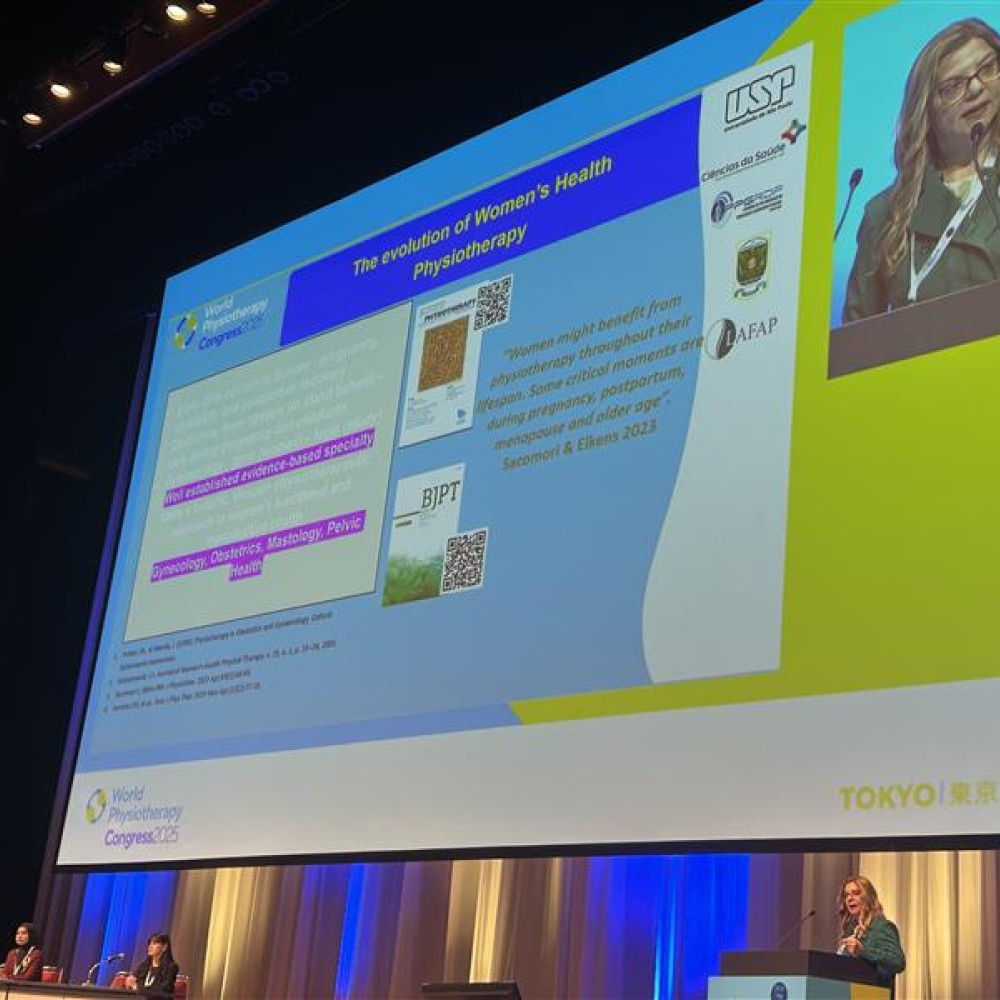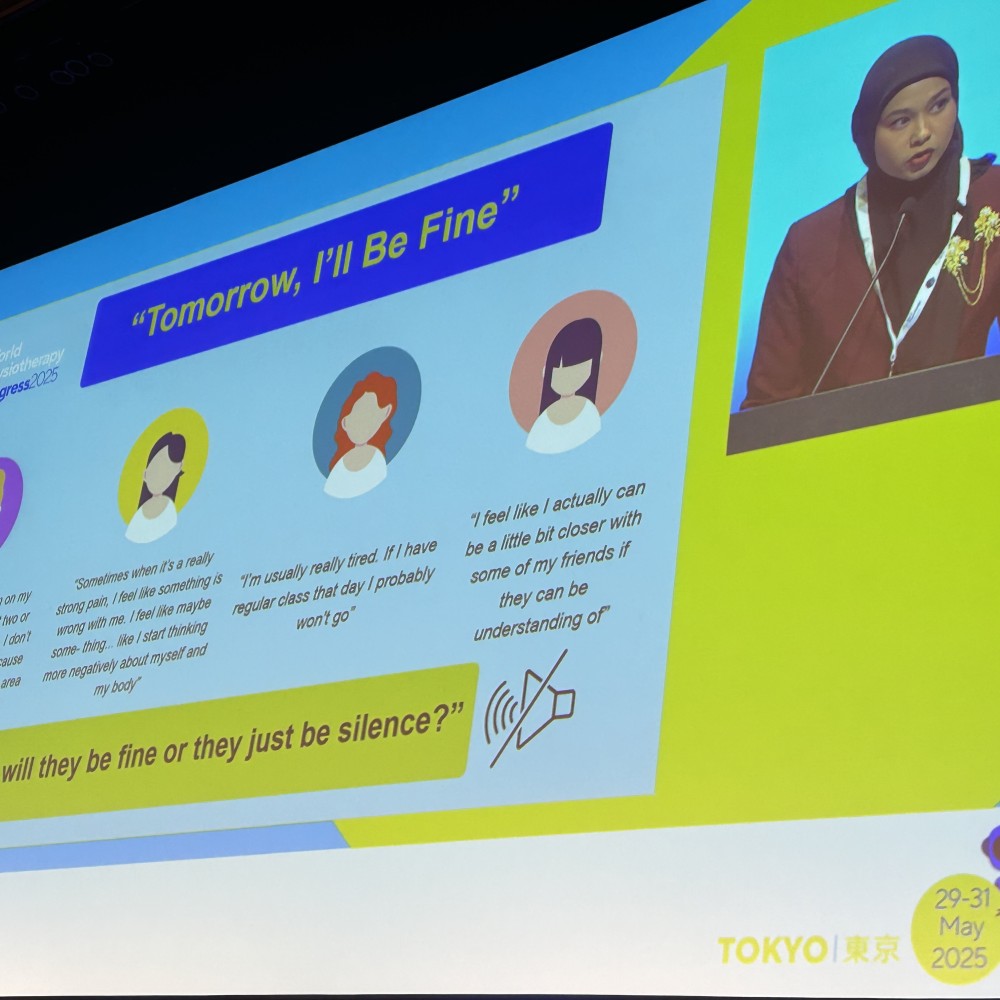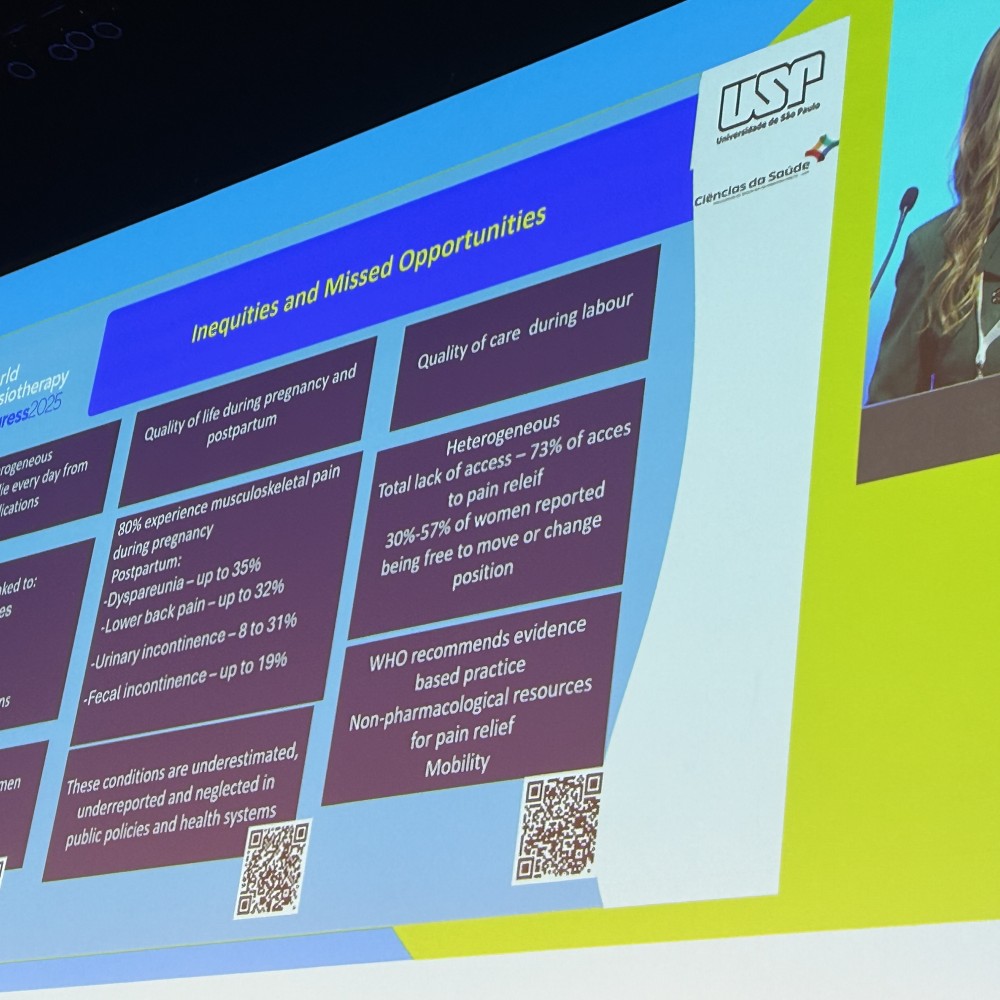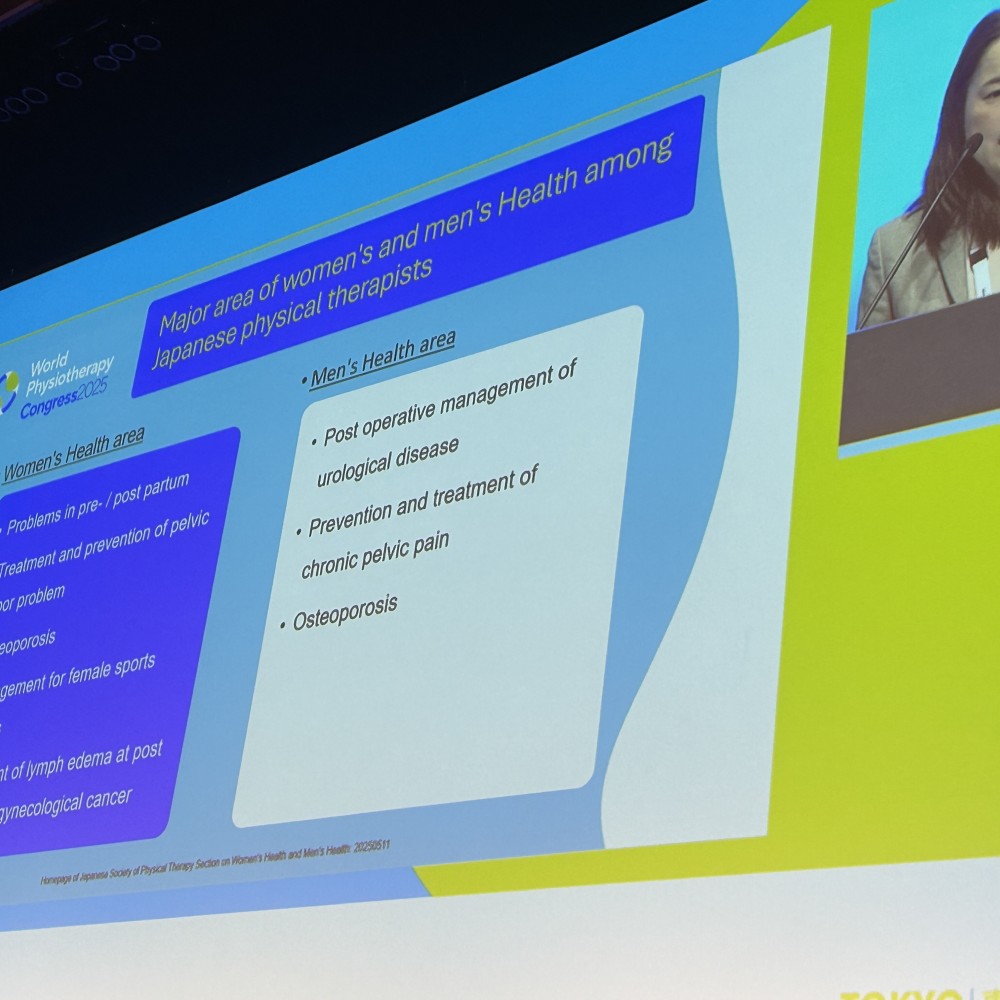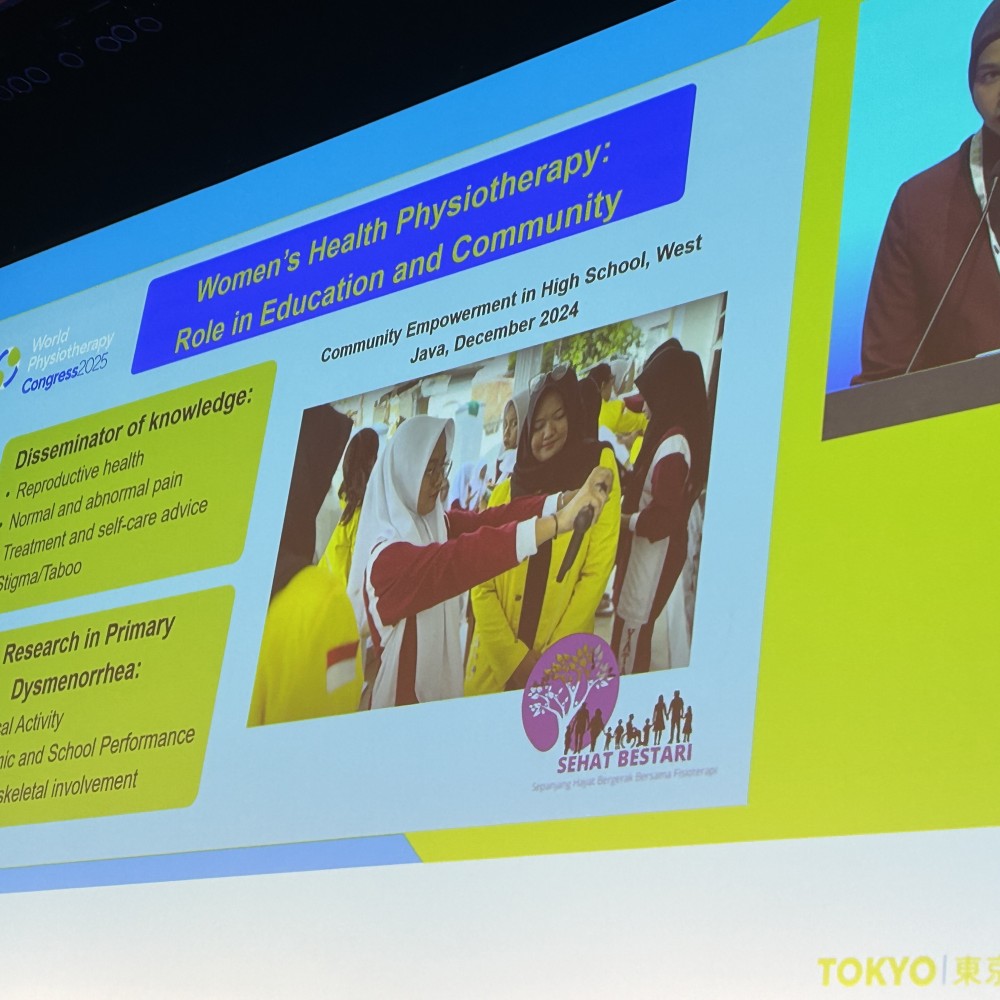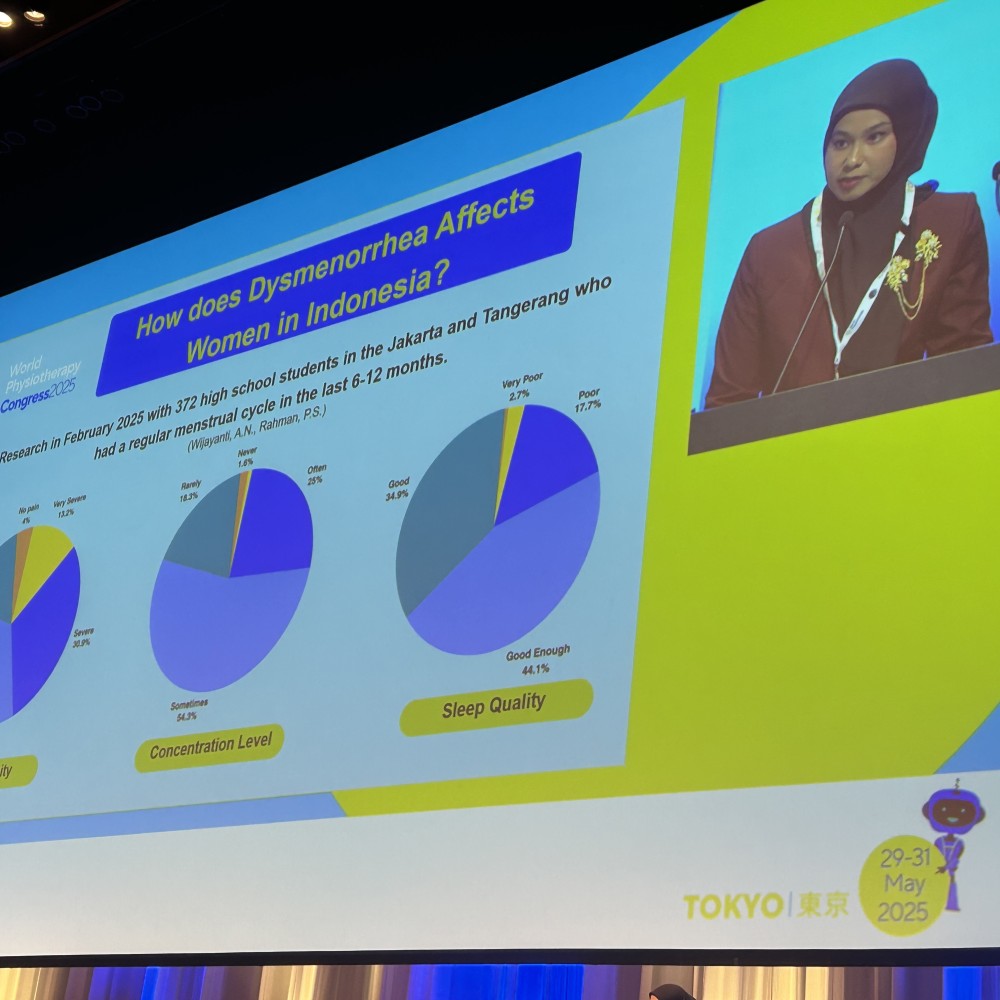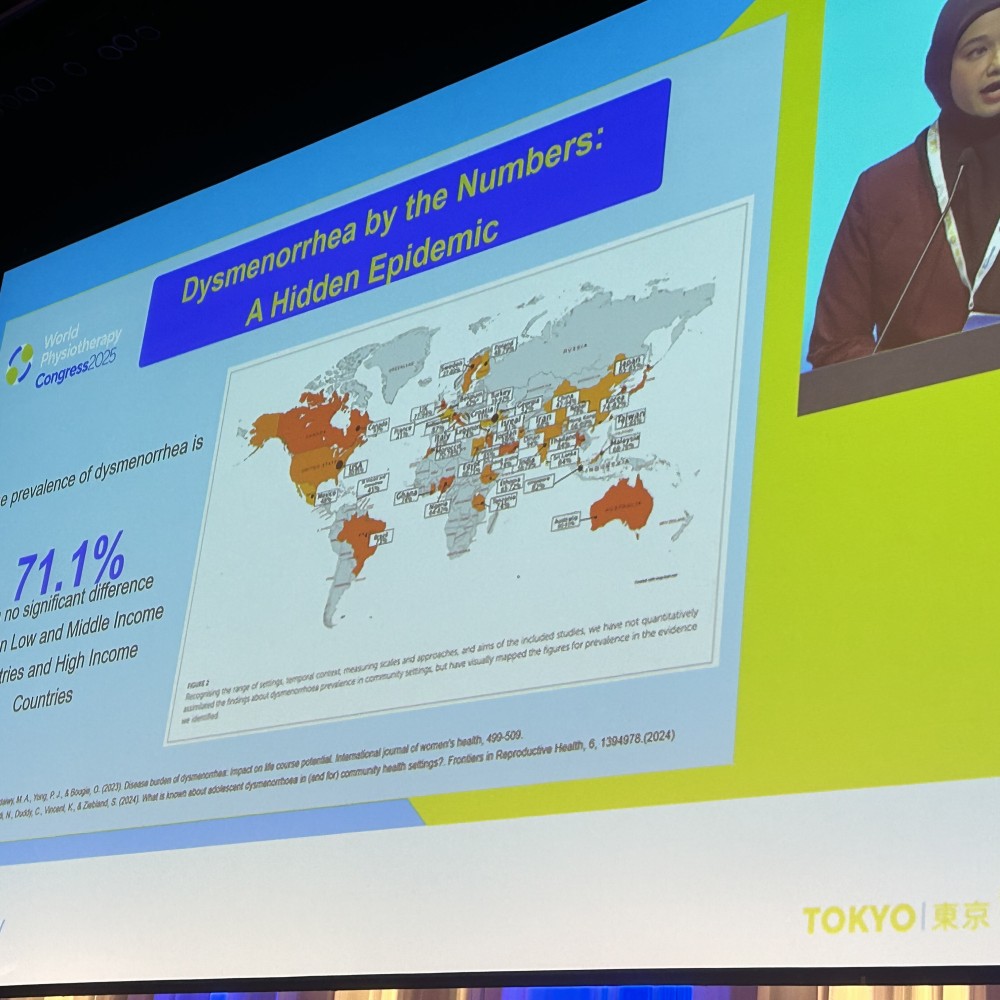In a powerful session coinciding with the International Day of Action for Women’s Health, leaders from across the globe gathered at the World Physiotherapy Congress 2025, 29-31 May, to reframe and expand the conversation on women’s health physiotherapy.
Chaired by Sonia Roa-Alcaino (Chile), the session spotlighted the urgent need to break free from the reductive view that equates women’s health solely with reproduction and expands the understanding of the value of physiotherapy for women worldwide.
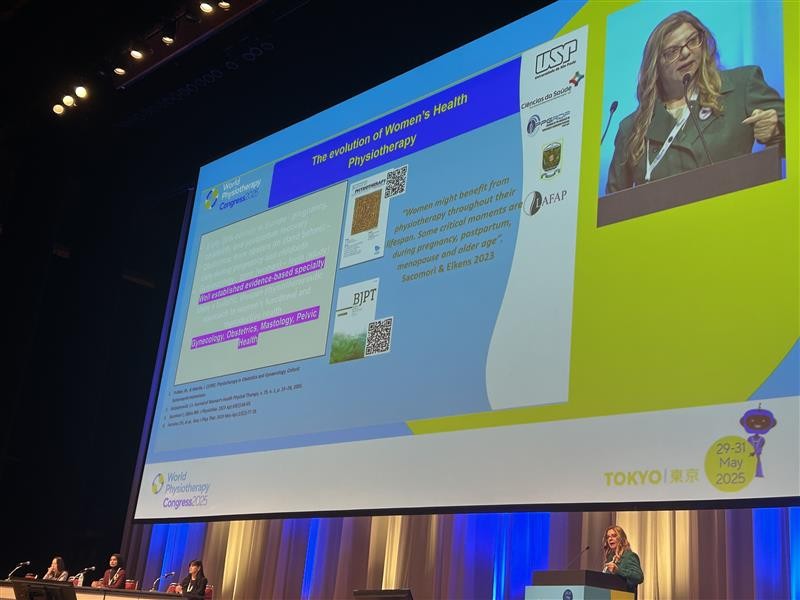
Sonia opened with a question, “Do we know enough about women’s health to care for women?” She illustrated the consequences of androcentric models of care—highlighting misdiagnoses, untreated pain and widespread health inequities—as a call to action for all physiotherapists.
Christine Homsi Jorge (Brazil) explored the discipline’s evolution, tracing its origins in obstetrics through to its broader application in gynaecology and chronic conditions. She detailed recent advocacy wins in Brazil that have expanded women’s access to physiotherapy during pregnancy, birth and postpartum. Despite these advances, she stressed that 800 women still die every day from preventable causes related to pregnancy and childbirth—most in settings without adequate care. Christine urged all attendees to consider how they advocate for women. Physiotherapy has high level of evidence to impact obstetric care. Evidence is not enough – we must identify the gaps and make organisations stronger to fight for women’s care.
Indonesian academic Faizah Abdullah Djawas offered a compelling case for addressing dysmenorrhoea. Citing a global prevalence of 71 per cent, Djawas shared stories of young women quietly enduring debilitating pain. ‘We must stop normalising pain,’ she said. ‘Empowerment begins when we stop dismissing it and start listening.’
From Japan, Dr Ayako Yamamoto emphasised the need to develop professional expertise in pelvic health and integrate broader sociocultural and lifespan perspectives. ‘Women’s health must include physical, mental and emotional wellbeing across the entire life course,’ she said.
Across the session, speakers challenged health systems, educators and clinicians to redefine their understanding of women’s health. They called for holistic, evidence-based care models; stronger physiotherapy involvement in public policy; and curriculum reform to better equip graduates to respond to diverse health experiences.
This symposium made it clear: physiotherapists have a vital role to play in dismantling outdated frameworks and championing inclusive, accessible care for all women—no matter where they live or what stage of life they are in.

